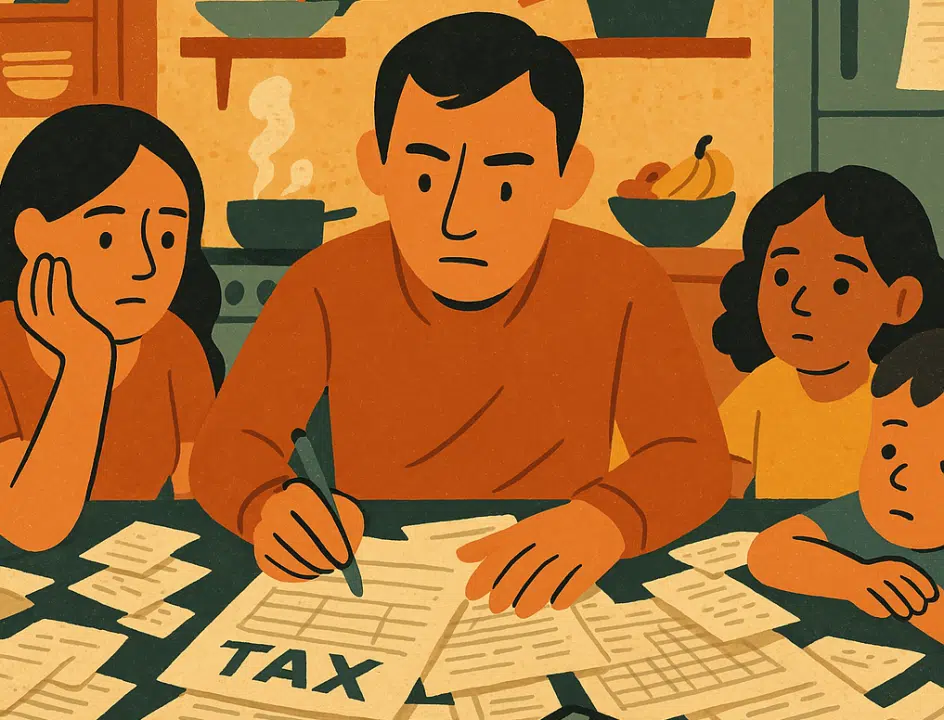A major win for families: Multiple states are about to roll out new child tax credits up to $600 per child. Find out how much you could get and when the payments begin.
What Is the New Child Tax Credit?

The Child Tax Credit (CTC) is getting a state-level boost in 2025, with Georgia and Maine introducing new programs offering between $250 and $600 per child. Designed to ease the financial burden of raising kids, these credits are targeted at low- and middle-income families.
- Georgia has approved a $250 per child credit for children under 6.
- Maine is proposing up to $600 per child for households earning under $55,000.
- Both programs are state-level complements to the existing federal $2,000 credit.
Georgia’s $250 Child Tax Credit: Who’s Eligible?
Beginning with the 2026 tax year, Georgia families can claim a $250 tax credit per child under age 6, deductible when filing state taxes in 2027.
Key rules:
- Applies only to children under 6 by the end of the fiscal year.
- Credit cannot be split between divorced/separated parents—only one filer per child.
- A second child or more may qualify for a reduced credit of $500 total.
Additional Benefits:
Georgia is also increasing the state deduction for dependent care expenses:
- Previously capped at 30% of federal deduction
- Now raised to 50%, providing more savings on daycare and related costs
Employers who contribute at least $1,000 annually per employee for childcare assistance may also be eligible for a state refund, incentivizing business support for working parents.
Maine’s Up to $600 Credit: Targeting Low-Income Families
A separate initiative in Maine would allow families to claim up to $600 per child under age 18, modeled after federal credits.
Eligibility criteria:
- Annual income under $55,000
- Children must be under 18
- Must file a state tax return and meet residency requirements
Economic Impact:
- Estimated to benefit over 200,000 children statewide
- Backed by bipartisan support
- Aims to boost local economies by increasing household spending on essentials like groceries and childcare
The proposed law (Legislative Document 1294) still awaits final passage but could take effect by next tax season.
Federal Debate: Could the $2,000 Credit Expand Again?
Beyond the states, Congress is divided on expanding the federal Child Tax Credit before it expires this fall and reverts to just $1,000 per child.
- The American Family Act proposes:
- $6,360 for newborns
- $4,320 for ages 1–6
- $3,600 for ages 6–17
- Democrats want full refundability and monthly payments
- Some Republicans back expansion but seek offsets or limits on broader social spending
Despite bipartisan interest, no deal has been finalized. Without congressional action, 40 million families could see their credits cut in half.
Summary Table: Child Tax Credit by Location
| Location | Credit Amount | Eligibility Highlights | Start Year |
|---|---|---|---|
| Georgia | $250 per child (under 6) | One filer per child; income not yet capped | 2026 |
| Maine (proposed) | Up to $600 per child | Under $55,000 income; kids under 18 | 2025–2026* |
| Federal (debate) | Up to $6,360 (proposal) | Pending legislation; higher amounts for younger kids | TBD |
*Pending final legislative approval
Why This Matters for Families
Raising kids is more expensive than ever—childcare, groceries, and rent keep climbing. These new credits offer real relief at a time when American families need it most.
From state-level credits now confirmed in Georgia to Maine’s pending legislation, more help is on the way. And as federal lawmakers battle it out in Congress, there’s still a chance for even bigger nationwide changes.
[Call-to-action]
